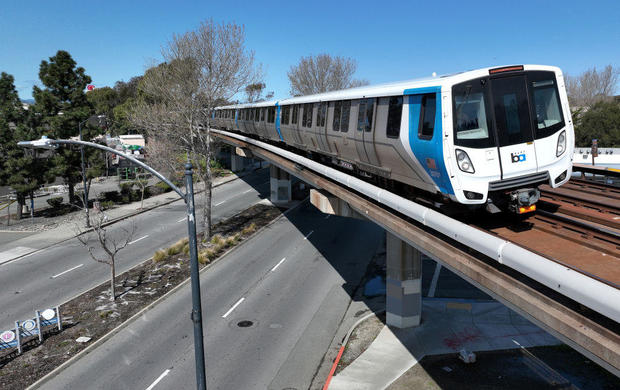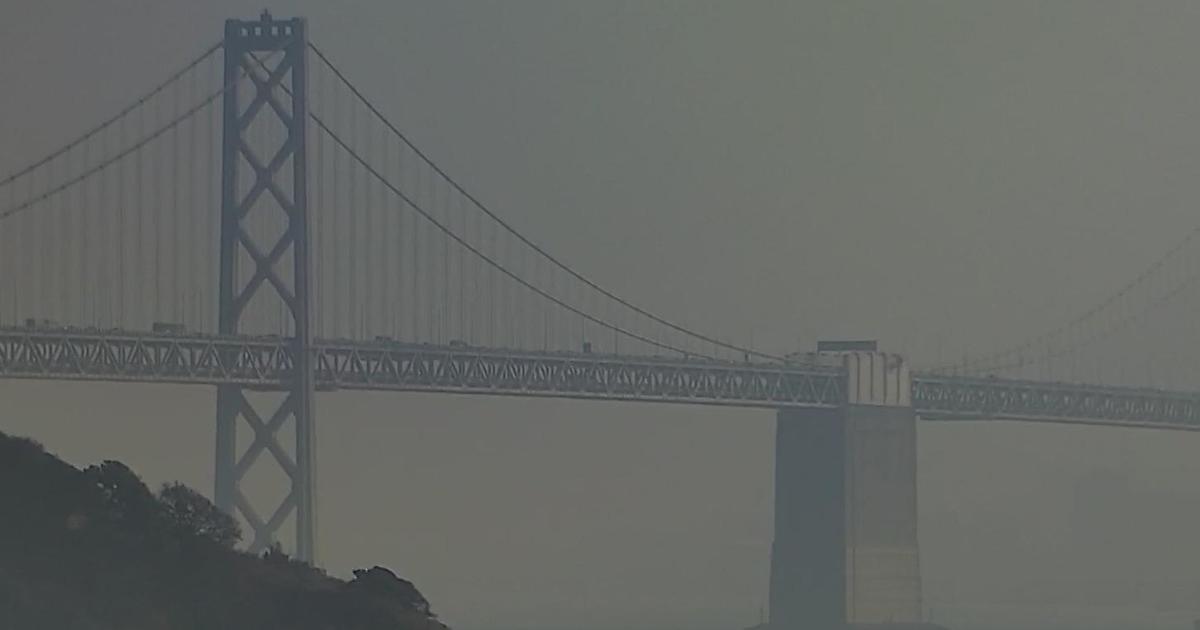Bay Area transit commuters face drastic cuts to service as fiscal cliff approaches
MILLBRAE -- Drastic service cuts may be coming to Bay Area mass transit as agencies see the end of COVID relief funds while ridership levels have not yet recovered. In the next fiscal year, BART is projected to have an operating deficit of $143 million, San Franciso Muni will have a $130 million deficit, and Caltrain's deficit will reach $49 million.
Bay Area resident Joey Sangco used to rely on BART for his daily commute; he expressed his concerns about the transit system's safety.
"I used to commute on BART pre-COVID, but since COVID, not many people take it," Sangco said. "Even now, post-COVID, it doesn't feel as safe as it was before. So I don't use it as much as I used to. I drive."
During our conversation at Millbrae Station, he mentioned that he would only consider taking BART these days for airport transportation.
However, for residents like Gerard Rushingabigwi - who doesn't own a car - BART and Caltrain are essential for their daily commute. Rushingabigwi, a fellow at Stanford University, relies on the trains to travel to Palo Alto daily. He highlighted the convenience of the trains, stating, "The trains are very helpful, and I have been using them all this time without being late for my usual services."
However, he expressed concerns about potential reductions in train services during the summer, which would significantly impact his commute.
"I think it would be problematic if they stop," said Rushingabigwi. "And if I have to take the bus, it would take more than an hour, while the train only takes 20 minutes."
The concern about the state of the Bay Area transit system extends beyond individual commuters like Sangco and Rushingabigwi. Mayor London Breed recently sent a letter to state lawmakers, urging them to include transit operations funding in the state budget. She emphasized that San Francisco's economy, still recovering from the pandemic, cannot fully rebound if its transit systems collapse.
BART and San Francisco Muni may face service cuts this summer if they do not receive a $5 billion bailout included in the state budget. The agencies and other Bay Area transit systems are running out of federal pandemic aid and seeking a statewide subsidy to avoid layoffs and service reductions.
Governor Gavin Newsom has indicated his openness to transit funding proposals; however, he also highlighted the state's $31 billion budget gap, which limits its financial capacity to provide substantial assistance.
When asked about the potential service cuts, Sangco stated, "If it happens, it happens ... I mean, the intentions are there, the plans are there, but if they can't fund it and so forth, it still won't happen. So the bottom line is, if it doesn't happen, we'll continue doing what's safer for us."




